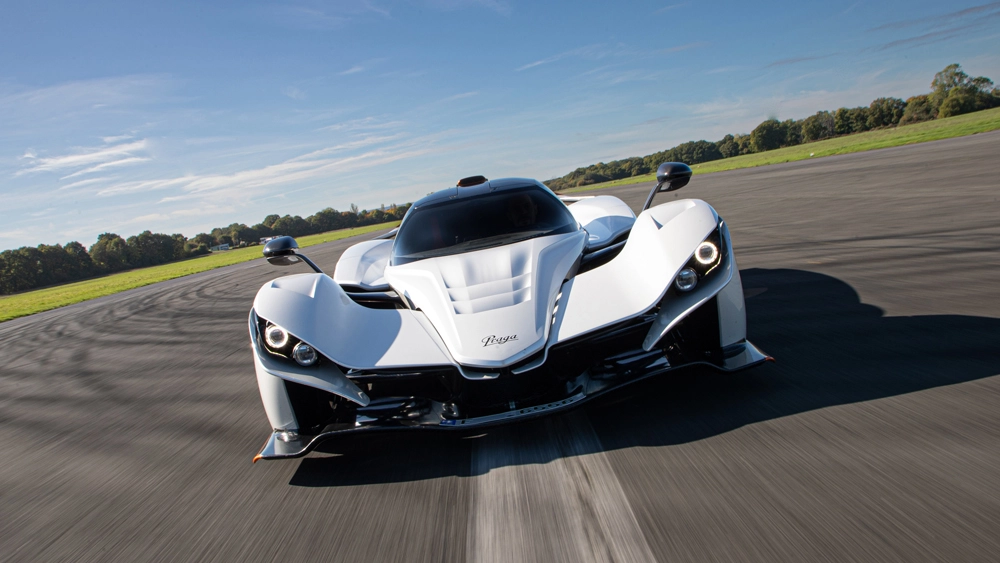The new road-legal hypercar, which is a high-performance, low-volume, luxuriously equipped vehicle built around three guiding principles: lightweight, carbon, and petrol, has been unveiled in pre-production prototype form by the storied automotive company Praga, a current global player in numerous on- and off-track racing disciplines around the world.
With its semi-slick Pirelli tires and under 1,000 kilograms of weight, the new Praga Bohema is a mid-engined, two-seater vehicle that, in the proper hands, is capable of lap times that would rival those of a GT3 race car. Nonetheless, it is also convenient and comfy for eye-catching road journeys.It is extremely lightweight, aiming to weigh just 982 kgs (wet without fuel), thanks to its carbon fiber monocoque and race-oriented fully adjustable suspension. Meanwhile, its potent six-cylinder twin-turbo engine, which is derived from the Nissan GT-R, ensures dependability, ease of maintenance, and the possibility of further performance tuning. Whereas the semi-automatic race-derived transmission of the Bohema will offer a distinctive on-road experience with performance that is track-focused.
The PL38DETT engine in the Praga Bohema is based on Nissan’s renowned 3.8-liter twin-turbo V6 engine, which has been utilized in all GT-R models since 2007. It is built on an aluminum alloy cylinder block, with double overhead camshafts per cylinder bank, continuously variable valve timing on the inlet valves, and was initially inspired by Nissan’s experience at Le Mans.
This engine’s brilliance lies not just in its limitless performance potential but also in its well-known dependability and tunability.
Unusually, Nissan provides Praga with brand-new GT-R engines for the Bohema. Praga then collaborates with famous Litchfield Engineering from the UK on engine development and servicing needs;another long-time friend of the Praga brand. Litchfield has more than two decades of tuning experience and is known as the global authority on GT-R engines. Litchfield strips the new engines and converts them to dry sump, which reduces the overall height of the unit by 140 mm. This allows the engine to sit lower in the Bohema and prevents the risks of oil surge under high-speed cornering loads.





